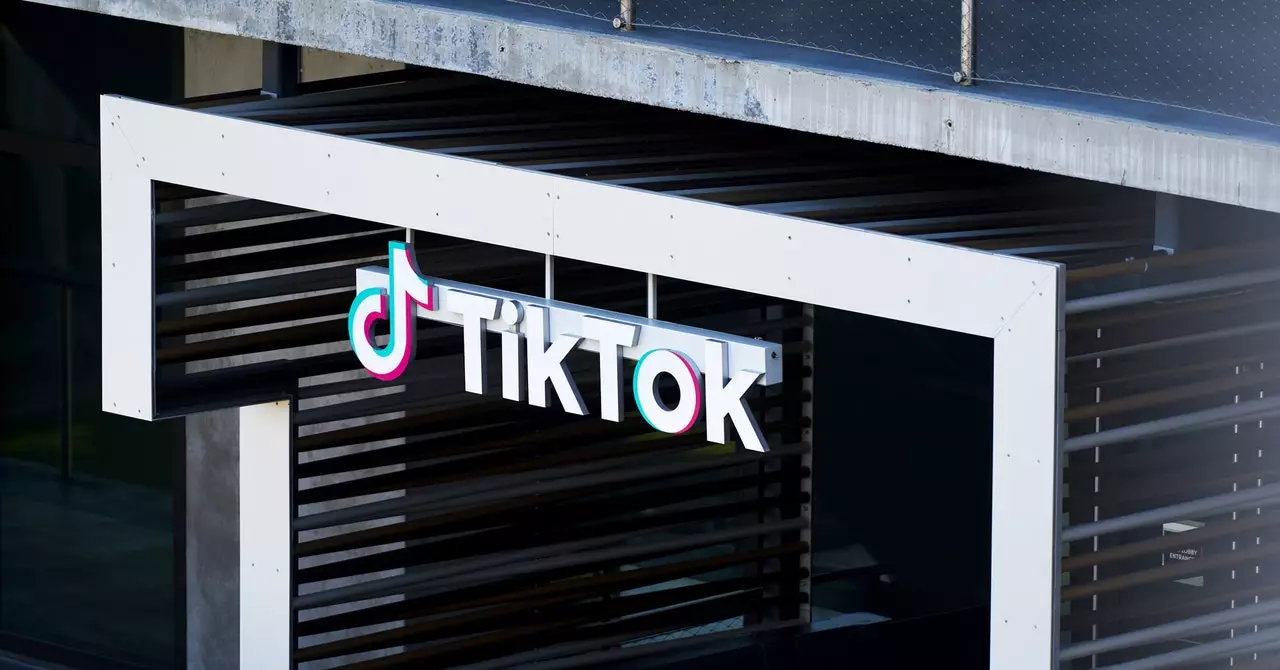As the world of politics edges closer to critical decisions that could alter the landscape of tech companies, particularly in the American market, TikTok stands out as a primary candidate for significant scrutiny. However, despite the significance of the upcoming U.S. elections, employees within TikTok’s ranks seem surprisingly disengaged from the political ramifications that could ultimately decide the future of the app. This detachment is indicative of a broader sense of uncertainty permeating the tech industry, where speculation about policy and regulation can often overshadow daily operations.
A product manager at TikTok, who requested anonymity due to the sensitivities surrounding the company’s situation, expressed that his concerns about a potential TikTok ban have lessened since joining the company earlier this year. This sentiment is echoed by multiple employees, revealing a notable cultural disengagement from the prevailing political discourse regarding the application. Instead of dwelling on the possibility of a ban, their focus has transitioned to product development and future features, seemingly ignoring the urgent discussions that swirl outside their corporate environment. It raises questions about the internal mindset and cultural dynamics among TikTok’s U.S. employees concerning the mounting pressures from governmental expectations.
Interestingly, while external observers continue to speculate extensively about TikTok’s fate amidst the complex web of political narratives, employees at the company largely avoid discussions about their app’s future in the U.S. marketplace. Their reluctance to engage in such matters, often reserved for conversations with international counterparts or non-ByteDance friends, underscores how operational priorities have shifted away from existential risk considerations. There is a vague consensus among employees that discussing political implications serves little purpose, as their roles focus on innovation rather than navigating a volatile landscape of legislative change.
The Protecting Americans from Foreign Adversary Controlled Applications Act (PAFACA) has stirred conversations about regulatory action but appears to have waned from the immediate concerns of TikTok employees. The law stipulates that TikTok should either divest its U.S. operations to a domestic firm or face a ban — a prospect that would undoubtedly reshape the app’s operational viability in one of its largest markets. Nonetheless, many employees express a sense of apathy toward such legislation, suggesting that they have subconsciously accepted a business-as-usual mentality. This situation highlights a pivotal gap between what stakeholders expect from tech firms and how employees interpret and react to these challenges.
The political dynamics at play are complex, with figures such as Kamala Harris and Donald Trump navigating their own positions regarding TikTok. As the Biden administration continues to set a tech policy framework, experts predict that Harris would uphold the parameters outlined in PAFACA. However, ambiguity surrounds Trump’s recent shift away from his previous hardline stance against app bans. His unusual pivot – implying that a vote for him would help save TikTok in America – illustrates the convoluted nature of political allegiances and corporate influence in contemporary politics. Yet, his lack of emphasis on TikTok during campaign appearances also raises questions about the sincerity of his commitment to the app’s preservation.
As the elections approach and political rhetoric intensifies, it’s apparent that TikTok employees expect their platform to endure, despite the surrounding political drama. Their focus on product development, rather than political maneuvering, reflects an intrinsic understanding that they have limited ability to influence outcomes directly. This acknowledgment speaks volumes about the nature of work culture within the tech industry, where innovation and day-to-day operations often take precedence over broader existential concerns.
TikTok’s employees embody a paradox intrinsic to the tech sector: a mixture of innovation and detachment from the outside world’s political frenzy. While the app’s fate hangs in the balance, insiders continue to pursue development endeavors, perhaps adhering to a philosophy that emphasizes resilience in the face of uncertainties. The looming elections, characterized by polarized views and political drama, will undoubtedly shape TikTok’s trajectory in the U.S. Nonetheless, the everyday realities of employees showcase a unique blend of hope and indifference, reinforcing the narrative that corporate culture often guides individual perspectives amid broader societal challenges. As the election outcome draws near, TikTok may need to pivot once more – ready to adapt to whatever form the political winds may take.

